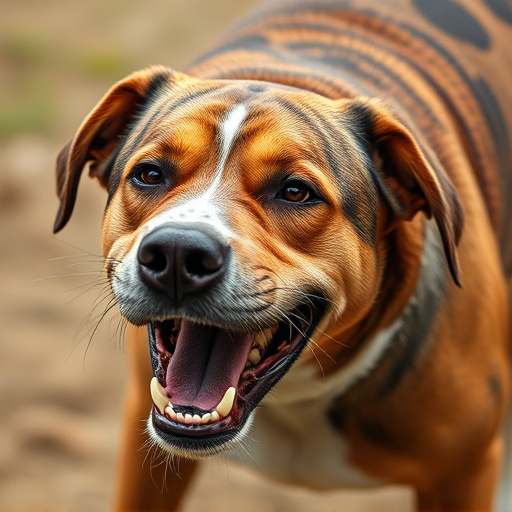Upon dog pepper spray exposure, immediately rinse affected areas with water for 15 minutes, ensure fresh air, and monitor for symptoms like coughing, breathing difficulties, or eye irritation. Seek veterinary advice promptly. For animal control pepper spray incidents, remove the dog from the area, rinse thoroughly, and watch for distress signs requiring vet care. Decontaminate gear, train dogs to respond to commands, and combine rapid response, decontamination, observation, and training for effective treatment.
“Animal control pepper spray can pose significant risks to dogs, especially during encounters in outdoor spaces. This article guides you through understanding the exposure risks, immediate actions to take if your dog is affected, and long-term strategies for prevention. Learn how to effectively treat dog pepper spray exposure, ensuring your pet’s safety and comfort. Discover key steps, from assessing symptoms to implementing care plans, all tailored to mitigate the impact of this potentially hazardous substance.”
- Understanding Dog Pepper Spray Exposure Risks
- Immediate Steps After Dog Is Exposed
- Long-term Care and Prevention Strategies
Understanding Dog Pepper Spray Exposure Risks
Dog pepper spray exposure can pose significant risks, especially if your pet comes into contact with high concentrations. Understanding how and why this happens is crucial for knowing how to treat dog pepper spray exposure.
When a dog inhales or makes direct contact with pepper spray, it stimulates nerve endings, causing irritation and inflammation in the respiratory system and eyes. This can lead to coughing, sneezing, difficulty breathing, eye redness, swelling, and even chemical burns. Prompt action is essential; rinse the affected area thoroughly with water, seek fresh air if possible, and consult a veterinarian immediately for further treatment and advice.
Immediate Steps After Dog Is Exposed
If your dog has been exposed to animal control pepper spray, immediate action is crucial. The first step is to remove your dog from the affected area and rinse them thoroughly with water. Pepper spray can cause severe irritation, so gentle but thorough washing helps to dilute and disperse the irritants. Avoid using soap as it may further irritate the skin.
Once rinsed, assess your dog for any visible signs of distress or injury. Look for coughing, difficulty breathing, red or swollen eyes, and excessive drooling. If you notice any of these symptoms, contact a veterinarian immediately. They can provide professional advice and ensure your dog receives the necessary treatment to alleviate discomfort and prevent potential long-term effects from pepper spray exposure.
Long-term Care and Prevention Strategies
Long-term care and prevention strategies are essential after an animal control pepper spray incident, particularly for dog owners. The first step is to immediately rinse the affected area with copious amounts of water for at least 15 minutes. This helps to dilute the pepper spray residue and reduce its potency. Afterward, take steps to prevent future exposure by thoroughly cleaning all clothing, shoes, and gear that may have come into contact with the spray.
Additionally, it’s crucial to understand how to treat dog pepper spray exposure effectively. Keep a close eye on your pet for any signs of distress or unusual behavior, such as coughing, excessive panting, or difficulty breathing. If these symptoms occur, seek veterinary care immediately. Regular training sessions can also help dogs associate certain commands with the feeling of irritation from pepper spray, making them more responsive and easier to manage during future encounters.
Knowing how to treat dog pepper spray exposure is crucial for any pet owner. By understanding the risks, taking immediate action after exposure, and implementing long-term care strategies, you can ensure your dog’s safety and comfort. Remember, prevention is key; regular training and proper supervision can significantly reduce the risk of accidental exposure. With the right approach, you’ll be better equipped to navigate this situation and keep your furry friend happy and healthy.
